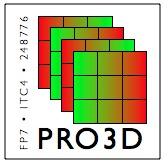Performance and Energy Trade-offs Analysis of L2 on-Chip Cache Architectures for Embedded MPSoCs
Aly, Mohamed M. Sabry ; Ruggiero, Martino ; Garcia del Valle, Pablo.
Presented at: 20th symposium on Great lakes symposium on VLSI, Providence, Rhode Island, USA.
Published in: Proceedings of the 20th symposium on Great lakes symposium on VLSI, 2010, p. 305-310, Date: 2010, ISBN: 978-1-4503-0012-4
On-chip memory organization is one of the most important aspects that can influence the overall system behaviour in multi-processor systems. Following the trend set by high-performance processors, high-end embedded cores are moving from single-level on chip caches to a two-level on-chip cache hierarchy. Whereas in the embedded world there is general consensus on L1 private caches, for L2 there is still not a dominant architectural paradigm. Cache architectures that work for high performance computers turn out to be inefficient for embedded systems (mainly due to power-efficiency issues). This paper presents a virtual platform for design space exploration of L2 cache architectures in low-power Multi-Processor-Systems-on-Chip (MPSoCs). The tool contains several L2 caches templates, and new architectures can be easily added using our flexible plugin system. Given a set of constrains for a specific system (power, area, performance), our tool will perform extensive exploration to find the cache organization that best suits our needs. Through some practical experiments, we show how it is possible to select the optimal L2 cache, and how this kind of tool can help designers avoid some common misconceptions. Benchmarking results in the experiments section will show that for a case study with multiple processors running communicating tasks allocated on different cores, the private L2 cache organization still performs better than the shared one.

